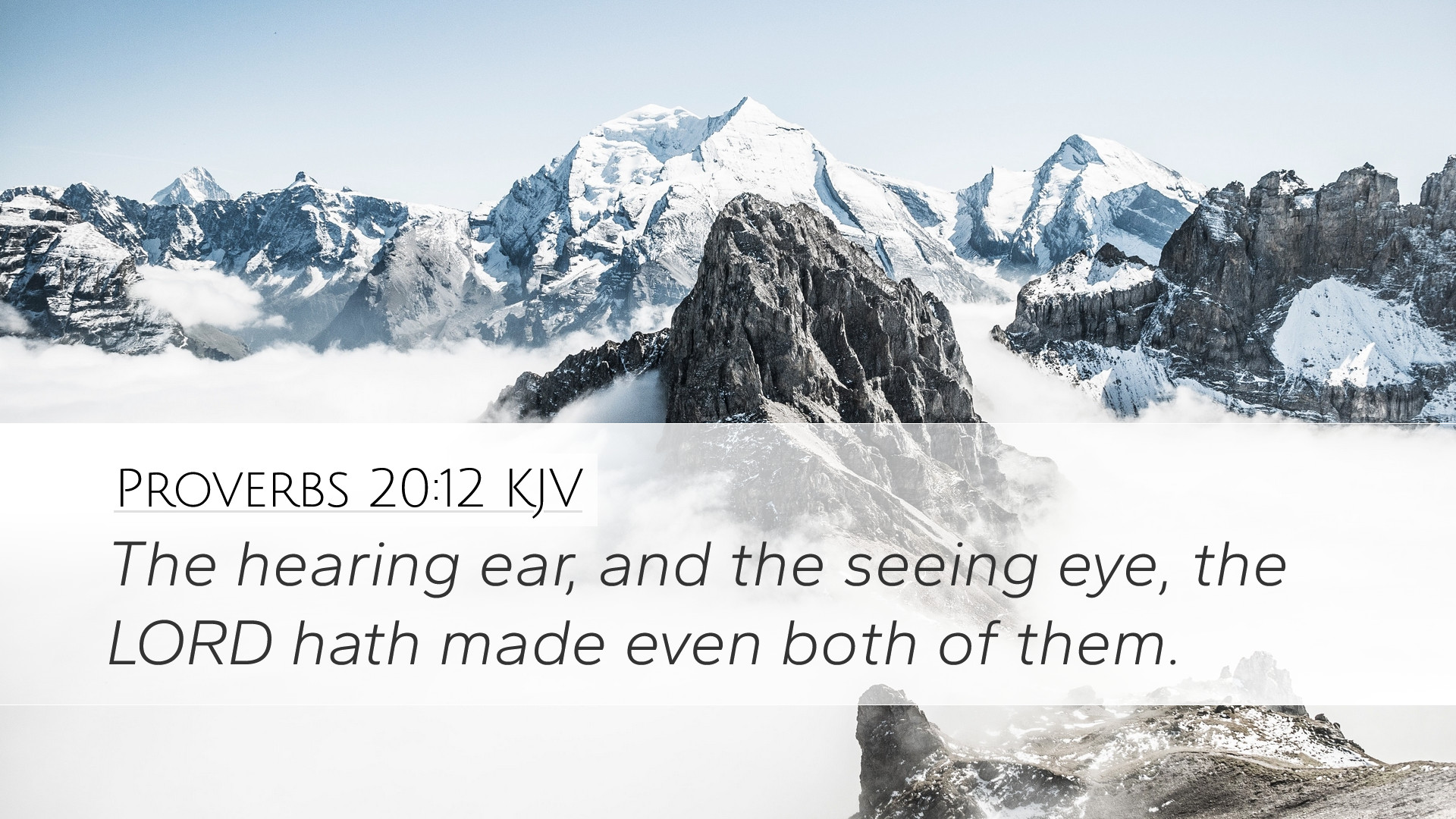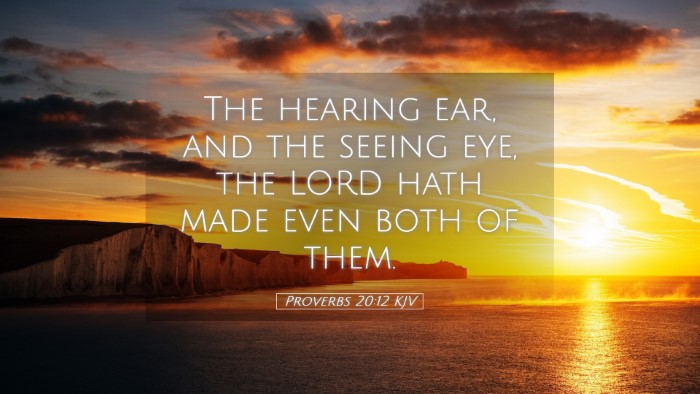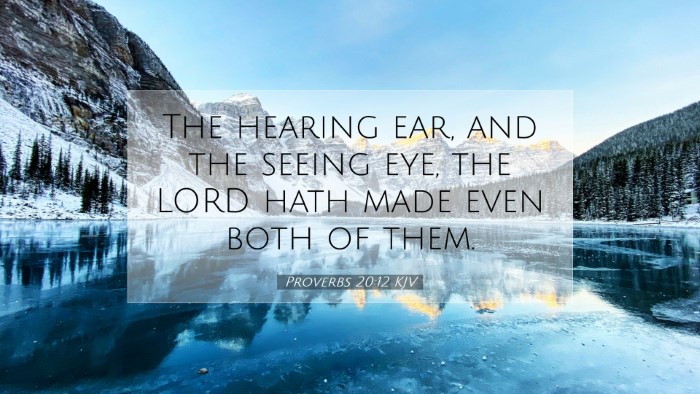Commentary on Proverbs 20:12
Verse Text: "The hearing ear, and the seeing eye, the Lord hath made even both of them."
Introduction
The verse Proverbs 20:12 encapsulates the profound truth about the significance of perception in understanding divine and human matters. It speaks to the gift of sensory perception—hearing and sight—as divine endowments that serve a higher purpose in our lives. Below, we synthesize insights from public domain commentaries on its implications for believers, clergy, and scholars alike.
Exegesis of Proverbs 20:12
Matthew Henry, in his commentary, emphasizes the notion that ears and eyes are gifts from God. He notes, "The ears that hear are God's creation; they should be used to listen to His Word, to discern truth." This presents a theological reflection on how humanity should respond to divine instruction and the importance of attentive listening.
Albert Barnes further expands on this thought, asserting that "the design of these faculties is to enable man to learn truths he could not understand otherwise." He illustrates that spiritual insight is directly linked to our ability to receive and process God's revelations through the senses.
Adam Clarke, too, brings a rich perspective to this verse, stating, "God has made the ear to hear, and the eye to see; both of these faculties should be employed for the glory of God." Clarke underlines the moral responsibility that accompanies these gifts—encouraging believers to engage actively in the pursuit of wisdom and understanding in their daily lives.
Theological Implications
This scripture verse prompts reflection on several theological dimensions:
-
The Sovereignty of God:
All faculties of perception are under God's sovereignty as the Creator. This understanding should shape our worldview, as every ability is ultimately a divine gift designed for a purpose.
-
The Responsibility of Human Insight:
With the gifts of hearing and seeing come the responsibilities to use them wisely. Discerning God’s truths requires effort, diligence, and moral commitment.
-
Spiritual Awakening:
The faculties of the ear and eye can be spiritual symbols as well. Spiritual blindness and deafness are often depicted in scripture, losing the ability to access the truth available through God.
Practical Applications
For pastors, theologians, and students of the Bible, Proverbs 20:12 encourages the following practical applications:
-
Active Listening in Worship:
Encourage congregants to engage in worship through attentive listening to sermons and teachings, recognizing this as a means of perceiving God's truth.
-
Fostering Visionary Leadership:
Leadership within the church requires clear sight of God’s direction. Wise leaders must cultivate discernment and the ability to 'see' challenges and opportunities through a biblical lens.
-
Teaching on Perception and Understanding:
Use this verse to teach the importance of spiritual perception—promoting practices that enhance spiritual sight and hearing, such as prayer, meditation on Scripture, and communal dialogues.
Conclusion
Proverbs 20:12 serves as a reminder of the invaluable divine gifts of hearing and sight, combined with the inherent responsibility to utilize them for the glory of God. Scholars and clergy are called to reflect on these insights deeply, reminding their communities of the spiritual truths embedded within this succinct proverb. Ignoring the wisdom found in these abilities denies the richness of God's creation and can lead to spiritual stagnation. Let the community of believers strive to listen and see with renewed vigor as they seek to fulfill God's purpose in this world.


